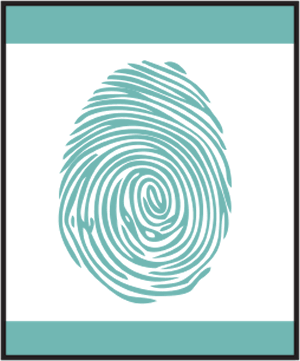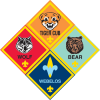
Forensics is about using science to answer questions and solve crimes. It is amazing how facts can be determined by this evidence. Forensic scientists use many things to solve crimes including fingerprints, footprints, or DNA (deoxyribonucleic acid). They put together clues to solve crimes.
Rationale for Adventure
To help the Bear Cub Scout learn about looking for clues and solving situations with those clues.
Requirements
Complete all of the following:
- Talk with your family or den about forensics and how it is used to help solve crimes.
- Take your fingerprints and learn how to analyze them.
- Complete one of the following:
- Learn about chromatography and how it is used in solving crimes. Do an investigation using different types of black, felt-tip markers. Share your results with your den.
- Do an analysis of four different substances: salt, sugar, baking soda, and cornstarch.
- Complete one of the following:
- Visit the sheriff’s office or police station in your town. Find out how officers collect evidence.*
- Learn about the different jobs available in forensic science. Choose two, and find out what is required to work in those jobs. Share what you learn with your den.
- Learn how animals are used to gather important evidence. Talk about your findings with your den.
* Note that this may be done during the same visit as “Paws for Action” requirement 3A.
Takeaways for Cub Scouts
- Learning observation and listening skills
- Following instructions
- Working with a team
- Helping others
- Problem solving
- A Scout is loyal
Historical Requirements
2015 Handbook Requirements
Bear Handbook, page 194
Bear Den Leader Guide, page 131
- Talk with your family and den about forensics and how it is used to help solve crimes.
- Analyze your fingerprints.
- Learn about chromatography and how it is used in solving crimes. Do an investigation using different types of black, felt-tip markers. Share your results with your den.
- Do an analysis of four different substances: salt, sugar, baking soda, and cornstarch.
- Make a shoe imprint.
- Visit the sheriff’s office or police station in your town. Find out how officers collect evidence.
- Learn about the different jobs available in forensic science. Choose two, and find out what is required to work in that field. Share what you learned with your den.
- Learn how animals are used to gather important evidence. Talk about your findings with your den.






